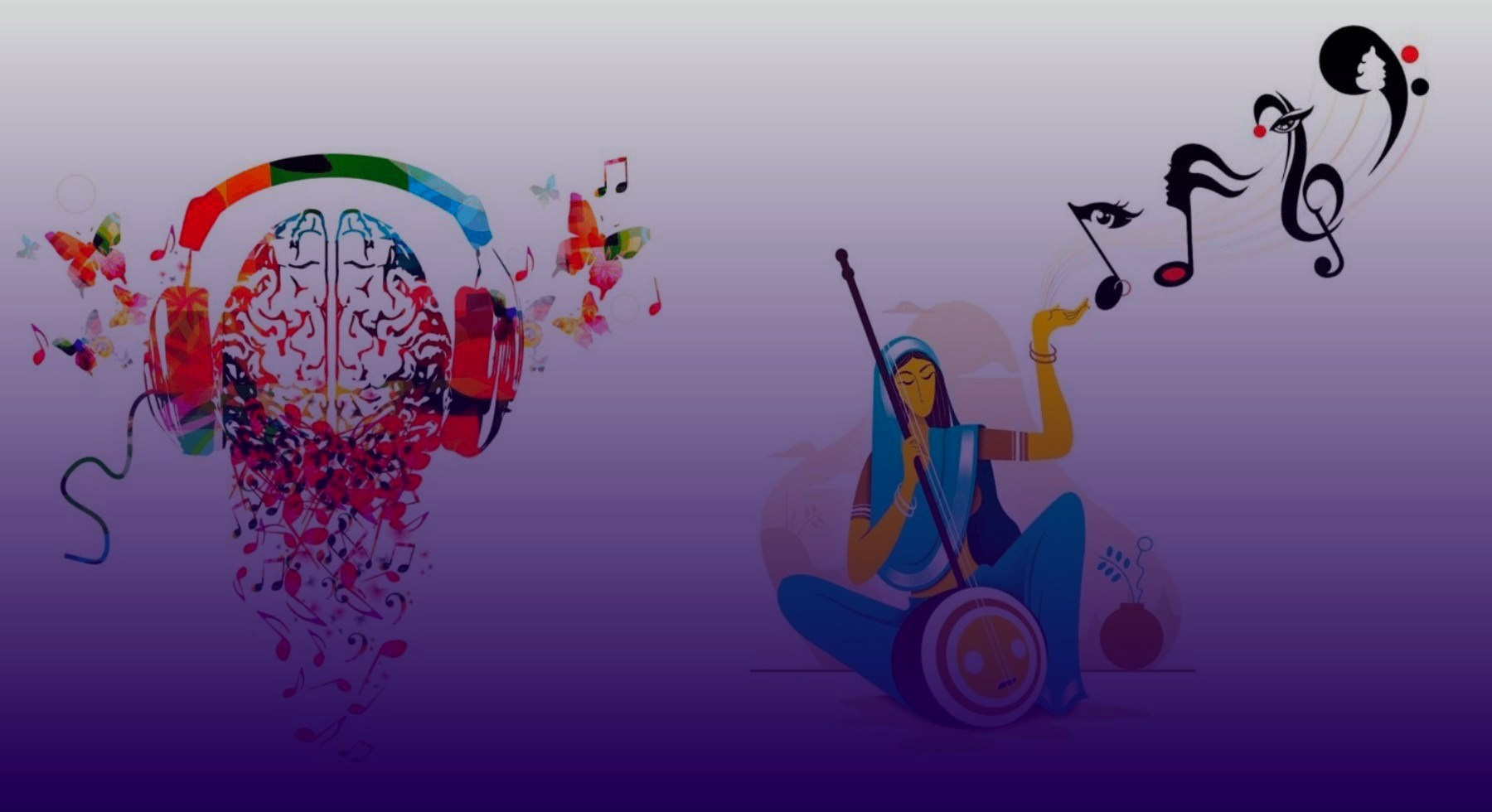The human mind is a complex and enigmatic entity but thanks to the scientific advancement in the past century, it has revealed some of its great wonders. In a study conducted by the Indian Journal Of Psychiatry, it was found that music stimulates our brain to the point of cognitive development, especially in the case of Classical music.
Indian Classical Music has had an unfaltered existence since time immemorial, and literature on the science of music (Gandharva tattva) dates back to the 4thcentury B.C.
“Raga Chikitsa,” one of the ancient Indian texts, elaborates on the therapeutic role of musical melodies.

The Soul Behind The Sound of Music:
Music and emotion share a universal relationship that surpasses the boundaries of language and culture. Listening to any music that is perceived as sad, evokes pleasant emotions in the listener. According to a tradition in the state of Tamil Nadu, ‘oppari’ (Oppari is a folk song tradition and is often an admixture of eulogy and lament) is sung at funerals as music is said to be cathartic. It is sung to relieve the family and friends of their grief and help them cope.

How Does The Brain Perceive Music?
The auditory area in the temporal lobe of the brain processes the sound of music; this part is also responsible for the recognition and perception of auditory stimuli, memory, and speech. Hence the sound of music improves the functions coordinated by this part, inadvertently, improving mental stability and cognitive functions.

What Are The Benefits of Classical Music?
- Improved Retention: Memory houses facts, figures, memories, and is a contributing factor to our intelligence. Classical music increases retention and learning. It increases attention span and is seen to bring more focus.
- Creativity: When we listen to, or sing classical music, our mind is seen to produce more images per minute. Both parts of our brain left and right ‘light up’ upon being stimulated.
- Balanced Physiology: Balanced blood pressure is another benefit classical music offers, it also decreases high blood pressure by a small amount.
- Psychological: Ancient works collected by King Sahaji (1684–1711) that have been preserved in the Thanjavur Saraswathi Mahal Library in the form of palm leaf manuscripts, serve as a record of remedial use of music in psychological ailments. A study conducted by NIMHANS on 20 schizophrenic patients showed increased reaction time and even improved attention tasks after listening to the instrumental rendition of Hindustani Classical Raag Bhoopali by musicians Pandit Shivkumar Sharma and Pandit Hariprasad Chaurasia for 10 minutes.
- Boosting exercising capabilities: Be it running on the treadmill or doing crunches or any other form of exercise- it was found that Hindustani Classical Music helps more than western music as it also maintains your body’s equilibrium by regulating blood pressure and keeping your heart rate normal.
 Implementing Classical Music In Our Daily Lives:
Implementing Classical Music In Our Daily Lives:
Adding classical music in the daily chores and tasks of our lives elevates mundane experiences while cooking, writing, exercising, etc. Some people have integrated classical music in the most intimate parts of their lives like at the time of childbirth too, as its vibrations seem to soothe the mother and the child.
So, the next time I wake up to M. S. Subbulakshmi’s Suprabatham early in the morning, or SP Balasubramaniam’s songs, I’m just gonna smile.


Yes music is divine. Good
Beautifully written piece of information 🙂